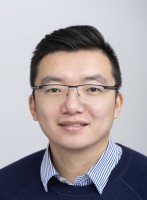Renewable Energy
Artificial Intelligence & Emerging Technologies
Wind Energy
Energy Storage & Smart Grids
Post-Doctoral Fellowships
Australia
2024.06.01
Creating Sustainable, Powerful Magnets to Generate Renewable Energy Using 3D printing Technology
The world is experiencing a global electrification revolution that will profoundly change how energy is generated, distributed, and used. A key component of this revolution is the use of permanent magnets, especially in renewable energy technologies like wind turbines and electric vehicles. However, these magnets rely heavily on expensive rare earth elements, which are in high demand and face competition for access. As a result, there is an urgent need to develop high-performance permanent magnets that do not rely on these rare earth elements.
Dr. Hansheng Chen’s research project at the University of Sydney aims to develop a new type of permanent magnet that could have a big impact on renewable energy and electric vehicles. The project will focus on a magnet that does not need these critical minerals, using instead a combination of aluminum (Al), nickel (Ni), and cobalt (Co), named Alnico. The use of 3D-printing technology allows the production of these magnets in a more efficient and cost-effective way. These advancements would pave the way for smaller, lighter, and more affordable applications, offering greater design flexibility and heightened efficiency in the conversion of electrical and mechanical energy, thereby making the shift to renewable energy and electric vehicles more practical and efficient.
This project will contribute significantly to the development of the expertise required in this sector. The need among oil and gas industry players to enhance the usage of energy-intensive technologies such as electronic submersible pumps represents an opportunity for the market vendors of permanent magnets. More broadly, environmental benefits from improved performance in advanced electrical motors and generators with enhanced efficiency of energy conservation can directly reduce carbon emissions. This project will further our understanding of the production and effectiveness of these magnets at the micro level, as well as the ability uncover new insights into the fundamental science of magnetic materials at the atomic level. It not only holds the potential to establish new collaborative relationships within Europe but also has the capacity to foster cooperation and knowledge exchange in similar fields worldwide. Ultimately, Dr. Chen’s research could contribute to the global push towards renewable energy and achieving net zero emissions.
This project will be undertaken at the School of Aerospace, Mechanical and Mechatronic Engineering, Sydney Manufacturing Hub, and Sydney Microscopy & Microanalysis.

Hansheng
CHEN
Institution
University of Sydney
Country
Australia
Nationality
Chinese
Related articles
Renewable Energy
Terrestrial Biodiversity
Solar Energy
Agriculture, Crops & Soil Health
Post-Doctoral Fellowship
France
2024.03.01
How Agrivoltaics Can Meet the Net-Zero Policy
Dr. Chloé Dindault’s project at the National Polytechnic Institute of Bordeaux (Bordeaux INP) will address the dual challenge of enhancing... Read more

Chloé
DINDAULT

